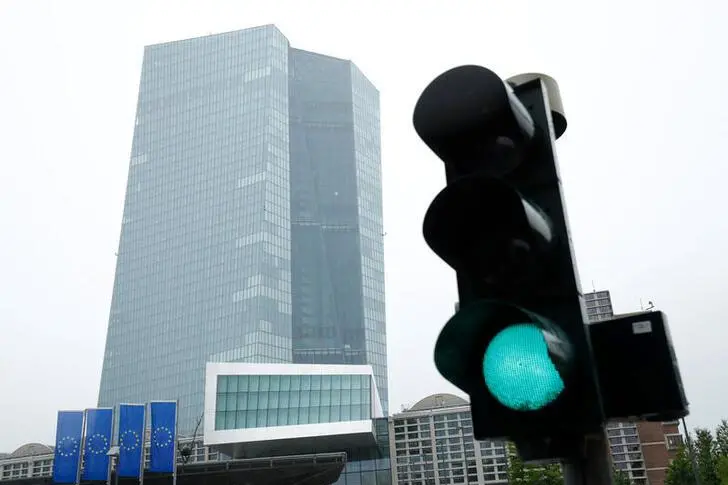PHOTO
(The author is editor-at-large for finance and markets at Reuters News. Any views expressed here are his own)
LONDON - Like households stashing savings away during lockdown, European firms have also put precautionary cash piles aside, and both could fuel economic recovery if the pandemic ends in early 2021.
These two potentially powerful forces have built up thanks to massive government and central bank support for jobs, incomes, credit markets and small businesses.
A surge in savings by people still working or getting paid but unable to travel, with less to spend on and fearing for the future saw the U.S. personal savings rate hit an historic 33% of incomes by April, more than $6 trillion in total.
A near halving of the rate by July, to a still historically high 17%, has already fueled a rebound in the United States.
In Europe, the picture looks very similar with a sharp build-up in household deposits at banks.
Meanwhile, the other cash build-up happened as companies scrambled to lock in near-zero borrowing rates and build cash buffers to see them through the pandemic, while cutting dividend payouts, buybacks and in some cases bonus payments.
The numbers for Europe are eye popping.
Bank of America's European credit team estimate that non-financial investment grade companies in the euro zone now sit on record cash levels equivalent to 110% of last year's earnings, with the breakdown for French firms alone as high as 150%.
And despite the ongoing pandemic, the pace of economic recovery, the unwillingness of governments to return to nationwide lockdowns and a huge worldwide effort to develop a vaccine means those cash levels may be excessive.
"Corporates in Europe may have ended up raising too much cash - especially as politicians balk at a return to big lockdowns," Bank of America wrote, adding non-financials raised more than a half a trillion euros in liquidity across bond and loan markets since March and French corporates have raised cash equivalent to 9.3% of French gross domestic product.
This could bode well for corporate bond markets by minimizing net new debt issuance for the rest of the year, Bank of America's team said, adding that equities could also benefit as shareholder pressure to cut "excess" cash may see an earlier return of dividends, buybacks and mergers and acquisitions.
Not only have bond sales dried up through the summer to reflect the cash build, but additional euro zone bank lending to non-financial firms in July slowed to just 14 billion euros from as high as 122 billion euros in March.
HOOVER UP JUNK
Estimating the implied corporate default rates in global high yield junk bonds were now too high, the world's biggest asset manager BlackRock on Tuesday advised going overweight high yield corporate debt and reducing investment grade to neutral.
But how likely is the underlying rebound to continue from here One of the most bullish houses on the Street, Morgan Stanley, this week said the world economy would actually return to pre-pandemic output levels sooner than it originally thought - by the fourth quarter of this year. The United States would return there by the middle of 2021 - 4 quarters quicker than it took to recapture lost output after the banking crash 12 years ago.
But given the uncertainty surrounding the pandemic, some investors think corporate caution may still be warranted.
Russell Silbertson, strategist at asset manager Ninety One, said firms could gradually start to rethink a mix of dividends hikes, bond and share buybacks or even M&A but the current period was in many ways "the point of maximum danger".
Unlike normal, he said, asset managers are reasonably confident of the longer term as the pandemic will eventually end but the next 2-3 months is anyone's guess.
"The time horizon is back to front," he said.
The twist to Bank of America's research is that it shows the aggregate cash levels disguise huge variations between large and small firms - something that argues strongly to keep government supports in place through early next year.
"The reality is that there is plenty of "inequality" when it comes to access to financing," Bank of America wrote. "Herein lies the challenge for governments as state-backed lending programmes start to expire: ending them might take away precisely the crutch that smaller firms have been relying on."
(The author is editor-at-large for finance and markets at Reuters News. Any views expressed here are his own)
(By Mike Dolan, Twitter: @reutersMikeD; Editing by Alexander Smith) ((mike.dolan@thomsonreuters.com; +44 207 542 8488; Reuters Messaging: mike.dolan.reuters.com@thomsonreuters.net))





















